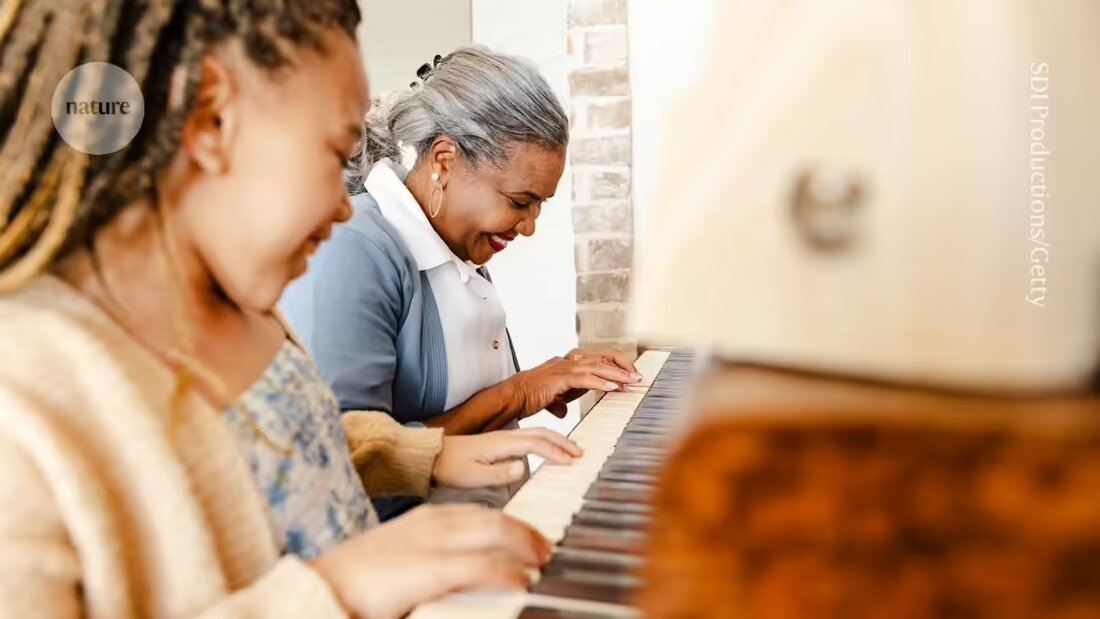Memory performance for music does not decrease with age
Memory performance for music does not decrease with age
The ability to remind and recognize a musical topic in contrast to many other forms of memory does not seem to be affected by age.
"You keep hearing anecdotes of how people with difficult Alzheimer's cannot speak, no people can recognize, but sing the songs of their childhood or play the piano," says feminist musicologist Sarah Sauvé, who is currently working at the University of Lincoln in Great Britain.
Past examinations have shown that many aspects of memory are influenced by old age, such as Implementation Tasks, Require real-time processing href = "https://www.nature.com/articles/492s4a" Data-Track = "Click" Data-Label = "https://www.nature.com/articles/492S4A" Data-track-category = "Body Text"> Automatic processes are not affected The influence of age on the ability to remember music was also examined, but Sauvé was interested in researching this effect in a real environment like a concert.
In her study PLOS one now published in 1 Healthy adults between the ages of 18 and 86 was able to recognize familiar and unknown musical topics at a live concert. The participants were recruited during a performance of the Newfoundland Symphony Orchestra in St. John’s, Canada. 31 more people looked at a recording of the concert in a laboratory.
The study focused on three pieces of music that were played at the concert: a small night music by Mozart, from which the researchers assumed that most participants were familiar with it, and two experimental pieces specially commissioned; One of them was tonal and easy to hear, the other was more atoner and did not correspond to the typical melodic norms of western classical music. A short melodic phrase from each of the three pieces was played three times at the beginning of the respective piece, and the participants then noted when they recognized this topic in the play.
The melodic phrase from the A small night music was recognized equally well in all age groups and musical backgrounds, without deciding to be decided with increasing age. All participants were less certain to recognize the topic in the unknown tonal piece, and even more insecure with the unknown atonal piece. This pattern also did not varied with age. The study also found no age -related difference in the results between the concert participants compared to those in the laboratory.
Steffen HERFF, a cognitive neuroscientist at the University of Sydney, Australia, says that the reason why musical memory against age -related cognitive declines seems to be resistant, could be related to the emotions that awakens the music in people, which means that it is more anchored in memory. "We know from general memory research that the amygdala - or emotional processing - works a little like a seal of meaning," he says.
music also follows certain rules, and so it is "relatively easy to make a pretty good guess on what happened in between," says HERFF.
The study collected limited data on the cognitive health of some participants, and therefore no detailed insights into the effects of cognitive impairments or neurodegerative diseases could be given to memory memory. But Herff says that there is a great interest in using music as a type of "cognitive scaffolding" - that is, as a memory support for other information - for people with neurodegenerative diseases such as dementia.
-
Sauvé, S. A. et al. Plos one 19 , E0305969 (2024).


Kommentare (0)